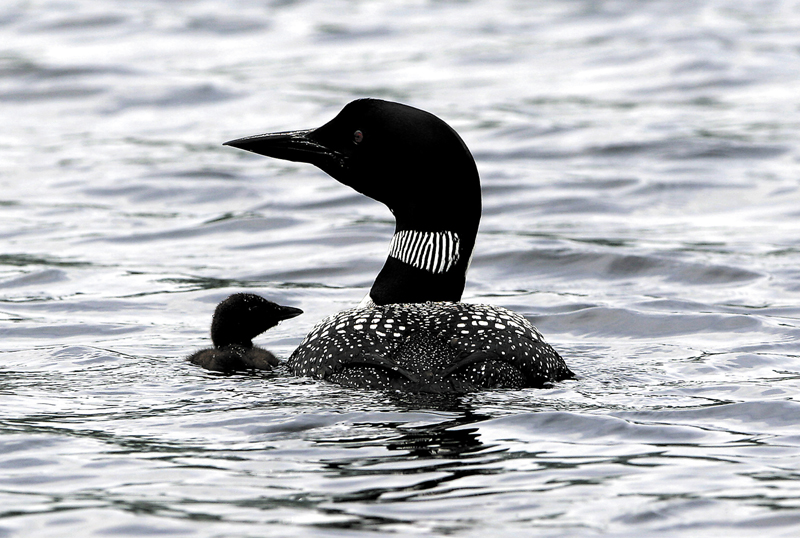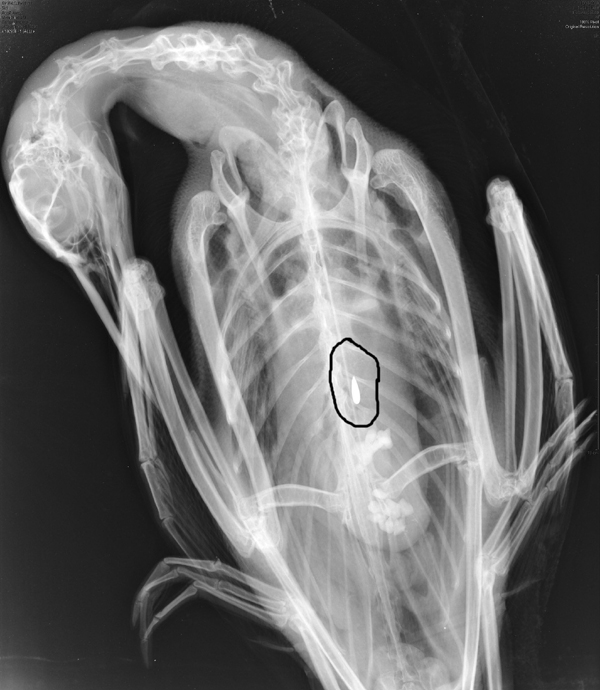AUGUSTA — The former head of the Sportsman’s Alliance of Maine told lawmakers Thursday that fishermen shouldn’t continue using lead sinkers and jigs that harm loons on local lakes.
“We’re fishing with toxic waste,” said George Smith, of Mount Vernon. “It’s time to get the lead out of our tackle boxes, our lakes, our ponds and our loons.”
Smith, a Morning Sentinel columnist who led the group for 17 years, was one of many people who told members of the Inland Fisheries and Wildlife Committee that they support L.D. 730, which would ban the use and sale of lead sinkers weighing 1 ounce or less and lead-headed jigs 2.5 inches long or less. It proposes a fine of at least $100 but not more than $500 for a violation.
Supporters say the bill is necessary because lead is the leading cause of death in adult loons and is estimated to be responsible for one-third of all loon deaths.
Opponents say the bill is unnecessary because the loon population is strong and it would cost fishermen too much to replace their gear. Dave Barnes Sr., president of the Bass Federation of Maine, said tungsten, an alternative to lead, costs $2.66 per weight while lead sinkers cost 13 cents each.
“This bill is no more than an anti-fishing bill,” he said. “The only people who will be able to fish will be rich.”
Ray Boies, secretary of Maine BASS Nation, said most fishermen love loons and respect their habitat.
“Jigs are expensive,” he said. “We’re not going to leave them in the water.”
Sen. Anne Haskell, D-Portland, is sponsoring the bill, which would expand a ban already in place for certain types of sinkers. Although she lives in Portland, Haskell said, she and her husband have a lake house in Raymond.
“Most of all, when you sleep at camp, you know the sound of that loon at dusk,” she said. “It’s not something that can be replicated.”
Estimates put Maine’s loon population at more than 5,000, more than that of any other state in the Northeast, according to the Associated Press. The state’s second-largest loon population during last July’s loon count by Maine Audubon was on Cobbossee Lake, in Kennebec County, where 73 adults and five chicks were spotted. The top count was on Moosehead Lake, where the count was 108 adults and nine chicks.
David Trahan, executive director of the Sportsman’s Alliance of Maine, said the group supports the intention behind the bill, but he raised several questions during his testimony. He asked whether there are enough alternatives to lead jigs and sinkers, and what would happen if a game warden found lead sinkers in a tackle box that were not in use.
Trahan, a former state senator, recommended a three- to five-year phase-in period with an educational component and a trade-in program. Also, he said Maine attracts bass fishermen from across the county, and he wondered whether additional lead restrictions would keep people away.
“Will we lose the significant resources that come with them?” he said.
Loons ingest lead when they catch a fish with a sinker or jig attached, when they eat gravel from lake bottoms that is necessary to aid their digestive process, or when they take it off a fisherman’s line, said Mark Pokras, a veterinarian and associate professor of wildlife medicine at Tufts University in Massachusetts.
When loons die in Maine and several other states, they are shipped to Pokras’ laboratory, where they are examined to determine the cause of death.
“Lead is the primary culprit,” he said. “This is a relatively easy fix.”
Loons live 25 to 30 years, but they don’t start breeding until they are at least seven years old, according to Maine Audubon. They also have only one chick at a time, Pokras said.
Don Kleiner, of the Maine Professional Guides Association, said his group supports the bill, although he hopes lawmakers add a phase-in period to give anglers enough time to replace their lead gear.
When the first bill was passed in 1999, it had a three-year phase-in period.
“We would beg for the gift of time,” he said.
Susan Cover — 621-5643
scover@mainetoday.com
Send questions/comments to the editors.




Success. Please wait for the page to reload. If the page does not reload within 5 seconds, please refresh the page.
Enter your email and password to access comments.
Hi, to comment on stories you must . This profile is in addition to your subscription and website login.
Already have a commenting profile? .
Invalid username/password.
Please check your email to confirm and complete your registration.
Only subscribers are eligible to post comments. Please subscribe or login first for digital access. Here’s why.
Use the form below to reset your password. When you've submitted your account email, we will send an email with a reset code.